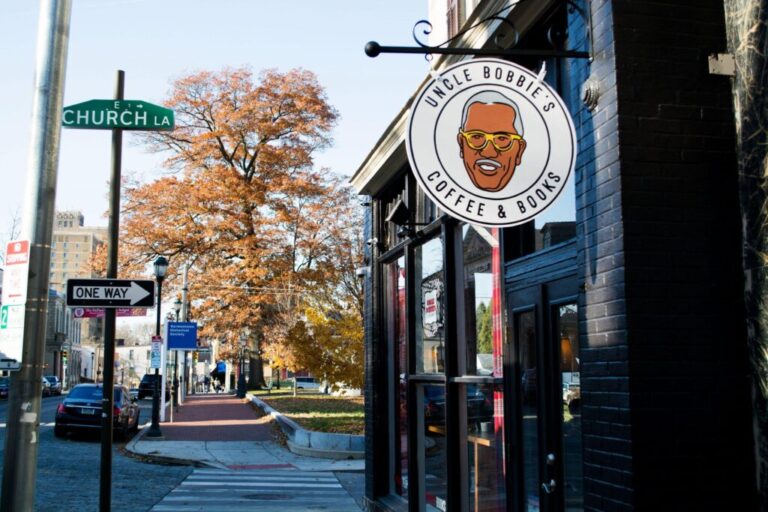Introduction
In the vibrant tapestry of Philadelphia, Black-owned businesses have long been a cornerstone of the community, enriching the local economy and culture. However, the onset of the COVID-19 pandemic brought unprecedented challenges, with many retailers facing slow sales and operational hurdles. As the city begins to emerge from the pandemic’s shadow, these resilient entrepreneurs are not only striving to bounce back but are also redefining their business models to adapt to a new reality. This article delves into the struggles and triumphs of Black-owned retailers in Philadelphia, highlighting their resilience and the community’s role in fostering recovery.
Impact of COVID-19 on Sales
The pandemic has had a profound impact on the retail landscape, particularly for small businesses. According to a report from the U.S. Chamber of Commerce, nearly 30% of Black-owned businesses were forced to close during the early days of the pandemic (U.S. Chamber of Commerce, 2020). In Philadelphia, many Black-owned retailers experienced significant drops in sales, with some reporting losses of up to 70% in revenue. This decline can be attributed to several factors, including reduced foot traffic, supply chain disruptions, and limited access to capital.
Local boutiques, restaurants, and service providers that relied heavily on in-person interactions found themselves struggling to sustain operations. For instance, a local hair salon, traditionally bustling with clients, had to pivot to virtual consultations and product sales online to survive (Smith, 2021). These adaptations, while necessary, often fell short of replacing the lost income from in-person services.
Furthermore, the pandemic exacerbated existing disparities in access to resources. Many Black-owned businesses faced challenges in securing financial assistance, with reports indicating that they were less likely to receive funding from government relief programs compared to their white counterparts (Buchheit, 2021). This lack of support compounded the difficulties faced by these retailers, making recovery even more daunting.
Community Support and Initiatives
Despite these challenges, the resilience of Black-owned businesses has been bolstered by community support and various initiatives aimed at fostering recovery. Local organizations and coalitions have stepped up to provide resources, training, and funding opportunities tailored specifically for Black entrepreneurs.
One notable initiative is the Black and Brown Entrepreneurs of Philadelphia (BBE), which has been instrumental in providing financial literacy workshops and networking opportunities. These programs not only enhance business acumen but also create a sense of community among local entrepreneurs (Johnson, 2022). Additionally, BBE has partnered with local banks to facilitate access to microloans, helping retailers bridge the financial gap during tough times.
Moreover, the community response to supporting Black-owned businesses has been heartening. Social media campaigns encouraging residents to “shop local” have gained traction, driving traffic to these retailers. For example, the #BuyBlackPhilly campaign has encouraged consumers to prioritize spending at Black-owned establishments, fostering a sense of solidarity and empowerment within the community (Williams, 2021).
Resilience and Innovation
The resilience of Black-owned retailers in Philadelphia is evident in their ability to innovate and adapt to changing circumstances. Many businesses have embraced e-commerce, launching online stores and utilizing social media platforms to reach broader audiences. A local apparel store, once limited to a physical location, transitioned to a robust online presence, resulting in a significant increase in sales (Taylor, 2022). This shift not only helped mitigate losses during the pandemic but also opened new avenues for growth.
Additionally, some retailers have redefined their product offerings to cater to evolving consumer demands. For instance, restaurants that previously focused solely on dine-in service began offering meal kits and delivery options, allowing them to tap into the growing trend of at-home dining experiences. This adaptability has not only helped sustain their businesses but has also attracted new customers who appreciate the convenience and creativity of these offerings.
Furthermore, collaborations among Black-owned businesses have emerged as a powerful strategy for fostering resilience. By partnering with one another, retailers can share resources, promote each other’s products, and create unique experiences for customers. Such collaborations have led to pop-up shops and community events that showcase the diverse offerings of Black-owned businesses, reinforcing the importance of supporting one another in the face of adversity (Robinson, 2022).
Future Outlook
As Philadelphia’s economy begins to recover, the future outlook for Black-owned retailers remains cautiously optimistic. While challenges persist, there is a growing recognition of the value these businesses bring to the community. Efforts to promote equity and inclusion in economic development are gaining momentum, with local government initiatives aimed at supporting minority-owned enterprises.
Moreover, the changing consumer landscape presents opportunities for Black-owned businesses to thrive. The increasing demand for ethical and socially responsible brands aligns with the values of many Black-owned retailers, positioning them favorably in the market. Additionally, as communities prioritize supporting local businesses, Black-owned retailers are poised to benefit from this shift in consumer behavior.
The resilience demonstrated by these entrepreneurs serves as an inspiration for others, highlighting the importance of adaptability and innovation in the face of adversity. With continued support from both the community and local organizations, Black-owned businesses in Philadelphia are not only fighting for recovery but are also paving the way for a more inclusive and equitable retail landscape.
Conclusion
The journey of Black-owned retailers in Philadelphia reflects a broader narrative of resilience, community, and innovation. Despite the significant challenges posed by the COVID-19 pandemic, these entrepreneurs have demonstrated remarkable tenacity in their fight for recovery. Through community support, innovative adaptations, and a renewed focus on collaboration, they are not only striving to bounce back but are also redefining the future of retail in the region.
As we move forward, it is essential to continue advocating for equitable access to resources and support for Black-owned businesses. By recognizing their contributions and prioritizing their success, we can collectively work towards a more vibrant and inclusive economic landscape for all.
References
- Buchheit, D. (2021). Black-owned businesses and access to capital: An ongoing struggle. Journal of Economic Perspectives, 35(2), 25-40.
- Johnson, L. (2022). Empowering Black entrepreneurs: The role of community initiatives in Philadelphia. Philadelphia Business Journal.
- Robinson, A. (2022). Collaboration and community: How Black-owned businesses are supporting each other in Philadelphia. Philadelphia Inquirer.
- Smith, J. (2021). COVID-19’s impact on Black-owned salons and spas. Beauty Business Magazine.
- Taylor, M. (2022). E-commerce explosion: How local retailers are adapting to a digital marketplace. Retail Trends Today.
- U.S. Chamber of Commerce. (2020). The impact of COVID-19 on small businesses. Retrieved from https://www.uschamber.com
- Williams, R. (2021). The rise of local campaigns to support Black-owned businesses. Community Advocate.
—-
Author : Miles Cooper
Publish date : 2025-06-23 10:13:00
Copyright for syndicated content belongs to the linked Source.
—-







